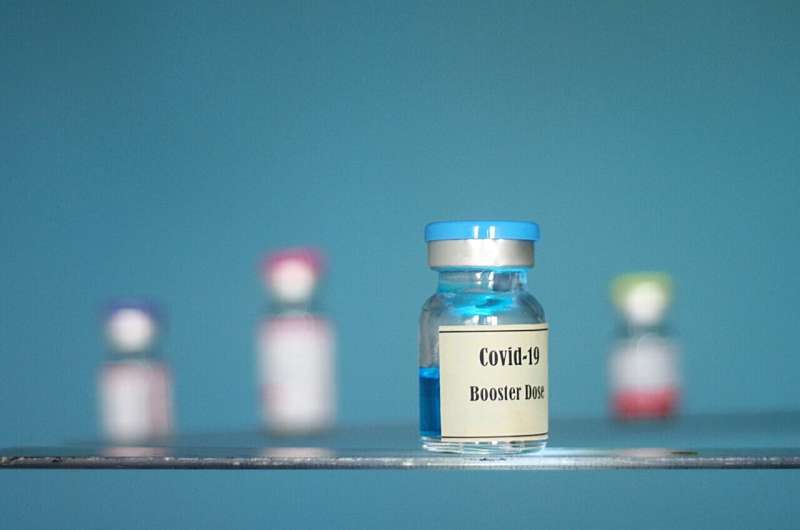

Israel’s programme of booster jabs has proved effective in reducing severe cases of COVID even as new infections hover near record highs, experts said, citing recent data.
Since taking office in June, Prime Minister Naftali Bennett has insisted he will aim to avoid any new lockdown, a pledge his government has kept even as the country of roughly 9.3 million people regularly records more than 10,000 new COVID cases a day.
Schools opened on September 1 and synagogues are set to welcome worshippers, with some restrictions, for Yom Kippur—the Jewish calendar’s most important day—when services begin on Wednesday evening.
To stay open, Israel has opted for a complex policy mix that has caused frustration for families forced to organise repeated COVID tests for their children to attend school or take part in other activities.
The backbone of Bennett’s strategy has been the rollout of a third shot of the PfizerBioNTech vaccine to everyone aged 12 and over, ignoring criticism that the booster jab is unnecessary and unfair.
But the 49-year-premier this week insisted his approach was working.
“Very many people were sceptical,” he told his cabinet. “But our strategy is proving itself.”
Top public health experts, citing recent data, agreed, telling AFP even though daily cases remain high, the booster shot has stemmed the rise in severe COVID cases, warding off a crisis that was brewing last month.
The third shot
Israel’s vaccination rollout that began last December was among the fastest in the world and brought infections to a trickle by June, when all pandemic restrictions were lifted.
But when cases began surging again through the summer, health experts confronted a key question, said Gabi Barbash, a former health ministry director general now with the Weizmann Institute of Science.
Had the surge been caused by the PfizerBioNTech vaccine’s waning effectiveness five months after the second jab, or, was the Delta variant’s ability to break through vaccine protection to blame?
“When the fourth wave erupted, we were not sure which was the more dominant factor,” Barbash told AFP.
But weeks after the third jab rollout began, the severe case count—which shot up from more than 70 in late July to 600 by mid-August—has stabilised, currently standing below 700. Infections also remain very low among the triple jabbed.
Those factors, Barbash said, make it clear that “waning immunity is what caused the fourth wave.”
“The Pfizer vaccine is decreasing in its effectiveness clearly after five months,” he said.
“And when such waning immunity meets such transmissible variants (like Delta), it is a disaster.”
He acknowledged criticism, notably from the World Health Organization, that offering third jabs was unjust with some poor countries struggling to offer even a single shot.
But Barbash argued that Israel’s small population would not stress global vaccine supplies and underlined that had Israel not administered shots it could have seen 1,000 deaths per month.
More than 7,400 Israelis have died from COVID-19.
Cyrille Cohen, a life sciences professor at Bar Ilan University and a member of the health ministry’s vaccine committee, cited data from the over 60 demographic to highlight the booster shot’s impact.
“If you are not vaccinated, you are around 35 times more likely to develop a severe case if you are over the age of 60, and around eight times more if you have two doses and no booster shot,” he said.
Hagai Levine, an epidemiologist at Hebrew University, told AFP that he had been “somewhat sceptical” of the need for a third shot, but that the stabilisation of severe cases proved the effort was a “success.”
Test, jab, test
Israelis have voiced frustration at the challenges of booking COVID tests, especially during the high holiday season when families typically gather.
Backlogs have also been caused by the high number of children who have been exposed to the virus and need negative tests in order to re-enter school.
At a drive-through testing centre in Jerusalem, mother of three Julia Ortenberg told AFP that days after school started, a classmate of her daughter tested positive for COVID, forcing her class into quarantine.
Ten days into the school year, 44,000 pupils were confirmed sick with COVID and 119,000 more in isolation, according to health ministry figures.
Ortenberg said she was reluctant to vaccinate her 13-year-old son, but without the jab he would have had to follow classes on Zoom or get a negative COVID test every two days to attend in person, which “wasn’t an option”.
Her run-up to Yom Kippur involved a fraught attempt to book a test for her daughter to free her from isolation, taking her son for his second jab, and then taking her daughter for a second test.
Source: Read Full Article